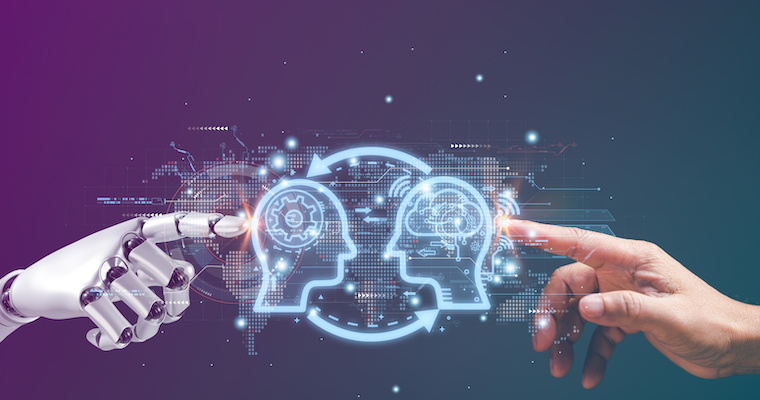Artificial Intelligence (AI) has swiftly transitioned from a futuristic concept to a transformative force, reshaping various sectors, including business. In this digital era, where data reigns supreme, businesses are constantly seeking innovative ways to gain a competitive edge. AI, particularly Machine Learning (ML), has emerged as a powerful tool, providing insights, automation, and predictive analysis that can redefine strategies and streamline operations. This article delves into the profound impact of AI in business, exploring how organizations are leveraging machine learning for a distinct competitive advantage.
I. Understanding the Basics of AI and Machine Learning
AI, a branch of computer science, encompasses technologies that enable machines to mimic human intelligence. ML, a subset of AI, focuses on the development of algorithms that allow systems to learn from data and improve their performance over time.
II. Enhancing Customer Experience Through Personalization
Machine learning algorithms analyze customer behavior and preferences, enabling businesses to offer personalized experiences. From product recommendations on e-commerce platforms to personalized marketing emails, ML algorithms enhance customer engagement and satisfaction.
III. Optimizing Operations and Supply Chain Management
AI-driven predictive analytics help businesses forecast demand, optimize inventory, and enhance supply chain efficiency. By analyzing historical data and market trends, organizations can make informed decisions, reducing costs and ensuring seamless operations.
IV. Revolutionizing Marketing Strategies with AI
ML algorithms analyze vast datasets to identify patterns and trends, enabling businesses to create targeted marketing campaigns. From social media advertising to content optimization, AI enhances marketing strategies, ensuring maximum reach and impact.
V. Improving Decision-Making Through Data Analysis
AI empowers businesses to make data-driven decisions. ML algorithms process large datasets, extract valuable insights, and present actionable information to stakeholders. Informed decision-making leads to strategic advantages and business growth.
VI. Ensuring Cybersecurity with AI
AI algorithms detect patterns in network traffic and user behavior, identifying potential security threats. Machine learning in cybersecurity helps organizations proactively prevent cyber-attacks, safeguarding sensitive data and customer trust.
VII. Facilitating Human Resources and Talent Acquisition
AI simplifies the recruitment process by automating resume screening and candidate matching. Natural Language Processing (NLP) algorithms analyze resumes and job descriptions, ensuring the selection of suitable candidates. AI also aids in employee engagement and talent retention through predictive analysis.
VIII. Overcoming Challenges and Ethical Considerations
While AI offers immense benefits, it poses challenges such as data privacy concerns, ethical dilemmas, and biases in algorithms. Addressing these issues is crucial to harnessing the full potential of AI in business while maintaining ethical standards and fairness.
IX. Conclusion
In conclusion, AI, especially Machine Learning, is revolutionizing the business landscape by providing invaluable insights, enhancing customer experiences, optimizing operations, and enabling data-driven decision-making. As businesses navigate the digital realm, embracing AI technologies is not just advantageous but essential for survival and growth in today’s competitive markets.
X. FAQs (Frequently Asked Questions)
Q1: How does AI benefit small businesses?
AI empowers small businesses by automating tasks, enhancing customer interactions, and improving efficiency, enabling them to compete with larger counterparts.
Q2: Is AI implementation costly?
While initial investment is necessary, the long-term benefits of AI, such as increased efficiency and cost savings, far outweigh the initial costs.
Q3: Can AI completely replace human workers?
AI complements human capabilities, automating repetitive tasks and allowing employees to focus on creative and strategic aspects of their work.
Q4: How does AI ensure data security?
AI algorithms detect and prevent security threats, ensuring data security by identifying and addressing vulnerabilities in real-time.
Q5: What industries benefit most from AI adoption?
Industries like healthcare, finance, e-commerce, and manufacturing benefit significantly from AI, optimizing processes and improving customer experiences.



